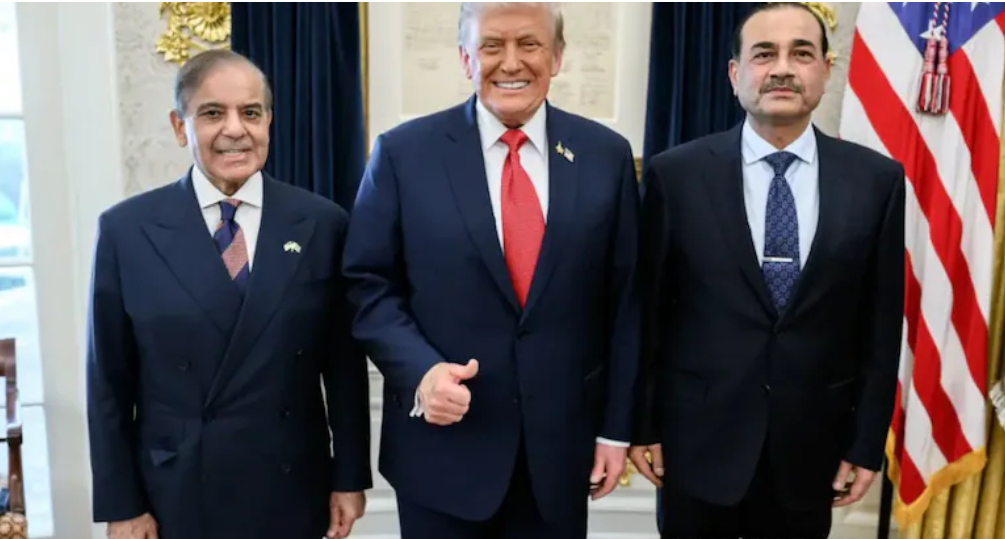Raising its voice against India once again, Pakistan has asked the World Bank to recognise its responsibility under the Indus Waters Treaty of 1960 to address its concerns over two disputed projects. This has come at a time when India has completed the Kishanganga hydropower project.
Dawn, a leading Pakistani daily published a report on Thursday quoting an unnamed government official saying that energy ministry has sent a fresh communiqué early this week to the Washington based World Bank’s vice president urging to “recognise its responsibility” and play its role to ensure that India abided by the provisions of the 1960 treaty while building the projects.
In August last year World Bank had allowed India to construct hydroelectric power facilities on tributaries of the Jhelum and Chenab rivers with certain restrictions under the 1960 Indus Waters Treaty (IWT). Pakistan had opposed the construction of the Kishanganga (330 meawatts) and Ratle (850 megawatts) hydroelectric power plants being built by India in Jammu and Kashmir.
 The World Bank noted that the two countries disagree over whether the technical design features of the two hydroelectric plants contravene the treaty and said that treaty designated these two rivers as well as the Indus as the “Western Rivers” to which Pakistan has unrestricted use.
The World Bank noted that the two countries disagree over whether the technical design features of the two hydroelectric plants contravene the treaty and said that treaty designated these two rivers as well as the Indus as the “Western Rivers” to which Pakistan has unrestricted use.
The Pakistani official said to the Dawn that there was no doubt that India had completed the 330MW Kishanganga project during the period the World Bank “paused” the process for constitution of a Court of Arbitration (COA) as requested by Pakistan in early 2016. India had countered the Pakistani request by calling for a neutral expert.
Pakistan had called for resolution of disputes over Kishanganga project on the Neelum river and 850MW Ratle hydropower project on the Chenab.
The Dawn report further said that in August last year Islamabad had received reports that New Delhi had completed the Kishanganga project as per the design that had been objected to by Pakistan.
The Pakistani official said that the second letter was sent to World Bank after a Pakistani delegation of the Indus Waters Commission was not allowed to visit various controversial projects in India, including Kishanganga and Ratle schemes.
 According to Pakistani officials, in December 2016, the World Bank had announced that it had “paused” the process for either appointing a Court of Arbitration (COA) or a neutral expert and started mediation between the two countries.
According to Pakistani officials, in December 2016, the World Bank had announced that it had “paused” the process for either appointing a Court of Arbitration (COA) or a neutral expert and started mediation between the two countries.
Since then India and Pakistan held two rounds of talks under the World Bank auspices. On completion of the project Pakistan proposed some modifications to partially address its concerns over the Kishanganga project’s design for water storage without affecting its power generation capacity. Last round of secretary level talks were held in Washington in September.
Dawn observed that Pakistan’s experience with both the international forums — neutral expert and CoA — has not been satisfactory for varying reasons and outcomes, partially due to domestic weaknesses including delayed decision-making. Pakistan first challenged the Baglihar hydroelectric project before the neutral expert and then the Kishanganga and Wuller Barrage projects before the CoA.
Pakistan had opposed Indian move saying its water rights were being violated by India on two rivers, the Chenab and Jhelum, through faulty designs of Ratle and Kishanganga projects. Pakistan believed that Kishanganga’s pondage should be a maximum of one million cubic metres instead of 7.5 million cubic metres, intake should be up to four metres and spillways should be raised to nine metres.
About the Ratle project, Pakistan had four objections. Freeboard should be one metre instead of two metres, pondage should be a maximum of eight million cubic metres instead of 24 million, intake level should be at 8.8 metres and spillways at the height of 20 metres.
It believes the Indian design of Ratle project would reduce Chenab flows by 40 per cent at Head Marala and cause considerable irrigation loss to crops. The Ratle dam is believed to be three times larger than the Baglihar dam.
Under the provisions of the Indus Water Treaty, the waters of the eastern rivers — the Sutlej, Beas and Ravi — had been allocated to India and that of the western rivers — the Indus, Jhelum and Chenab — to Pakistan except for certain non-consumptive uses.
The Kishanganga Hydroelectric Plant is part of a run-of the-river hyderoelectric scheme that is designed to divert water from the Kishanganga river to a power plant in the Jhelum River basin. It is located 3 km north of Bandipore with an installed capacity of 330 MW.
Construction on the project began in 2007 and was expected to be complete in 2017. However, construction was halted by Hague’s Court of Arbitration in October 2011 due to Pakistan’s protest. All the three units (3 x 10 MW) were commissioned and synchronised with the electricity grid by 30 March 2018.


 Cricket news16 hours ago
Cricket news16 hours ago
 India News16 hours ago
India News16 hours ago
 India News16 hours ago
India News16 hours ago
 Latest world news16 hours ago
Latest world news16 hours ago
 Latest world news13 hours ago
Latest world news13 hours ago
 LATEST SPORTS NEWS10 hours ago
LATEST SPORTS NEWS10 hours ago














